Come join us now, and enjoy playing your beloved music and browse through great scores of every level and styles!
Can’t find the songbook you’re looking for? Please, email us at: sheetmusiclibrarypdf@gmail.com We’d like to help you!
Table of Contents
What is a Jazz Standard?
A jazz standard is a musical theme that has acquired a certain notoriety in the jazz genre, which is known by many musicians and which has been the subject of numerous versions, interpretations and improvisations, and which is frequently used in jam sessions and performances.
There are standards from all eras of jazz, such as ‘When the Saints Go Marching In’, ‘I Got Rhythm’ or ‘How High the Moon’, ‘Take the ‘A’ Train’ to cite examples of the hot, swing and bop.
Many of the best-known standards were composed for films, or come from the so-called Great American Songbook, and have been incorporated into the genre, such as, for example, ‘Summertime’, by George Gershwin, while, for example, ”Round Midnight’, by Thelonious Monk, has been covered by, among others, Cootie Williams, Dizzy Gillespie, Art Pepper, and Miles Davis.
Best Sheet Music download from our Library.
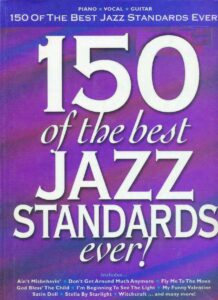
The most recorded standard composed by a jazz musician, and one of the most covered songs of all time, is Duke Ellington’s and Juan Tizol’s “Caravan” with over 500 uses.
Originally, the most recorded jazz standard was W. C. Handy’s “St. Louis Blues” for over 20 years from the 1930s onward, after which Hoagy Carmichael’s “Stardust” replaced it. Following this, the place was held by “Body and Soul” by Johnny Green.
Please, subscribe to our Library.
If you are already a subscriber, please, check our NEW SCORES’ page every month for new sheet music. THANK YOU!
Before 1920
At the beginning of the 20th century, jazz was still considered dance music. The first Dixieland groups remained influenced by this image: King Oliver and his Creole Jazz Band, the New Orleans Rhythm Kings and many other groups included Tin Pan Alley in their repertoires, and record companies sometimes dictated the list of titles that must be recorded by their artists.
Certain imposed songs have thus become standards, such as Darktown Strutters’ Ball or (Back Home Again in) Indiana, recorded by the Original Dixieland Jass Band at Columbia Records in 1917.
Also, among the standards of this era are the songs After You’ve Gone (Turner Layton and Henry Creamer, 1918) and Some of These Days (Sophie Tucker, 1910).
The 1920s
The Jazz Age began in the United States in the 1920s. Jazz became popular there, even though the older generation considered this music immoral and endangering their cultural values.
The first artist who allowed himself to freely choose his titles was Louis Armstrong, who popularized many standards during the years 1920 to 19301. The popular tunes of the 1920s were songs like Sweet Georgia Brown, Dinah or Bye Bye Blackbird.
Some compositions from this era written by jazz musicians have become standards such as Honeysuckle Rose (1928) and Ain’t Misbehavin’ (1929) by Fats Waller. The song Stardust by Hoagy Carmichael and Mitchell Parish is the most recorded jazz standard of the 1920s. Others are written by Broadway composers such as The Man I Love by George and Ira Gershwin (1924), Blue Skies by Irving Berlin (1927), or What Is This Thing Called Love? by Cole Porter (1927).
However, it was not until the 1930s that jazz musicians became comfortable with the complex melodies and sophisticated harmonic grids of Broadway tunes, and used them regularly in their repertoires.
The 1930s
Broadway contributed some of the most popular standards of the 1930s, including the famous Summertime from the comedy Porgy and Bess by George and Ira Gershwin (1935), My Funny Valentine by Richard Rodgers and Lorenz Hart (1937), All the Things You Are by Jerome Kern and Oscar Hammerstein II (1939), and Body and Soul by Johnny Green (1930). These standards are among the most recorded.
The 1930s saw swing establish itself in American music. Duke Ellington and his musicians composed many themes which would become jazz standards: It Don’t Mean a Thing (If It Ain’t Got That Swing) (1932), Sophisticated Lady (1933), Caravan (1936) among the most famous.

The swing era (1935–1946) is that of the greatest big bands, such as those of Benny Goodman and Count Basie, who also participated in the repertoire of jazz standards.
The 1940s
New themes became popular, such as Cotton Tail by Duke Ellington (1940) or Take the ‘A’ Train by Billy Strayhorn (1941). The Second World War was a difficult time for big bands, and small groups developed.
The arrival of bebop brought out a new audience sensitive to sophisticated harmonies, fast tempos, and the virtuosity of the musicians. Their repertoires largely use the standards of the 1930s, but their compositions will also enter the list of standards: Salt Peanuts (1941) and A Night in Tunisia (1942) by Dizzy Gillespie, Anthropology (1946), Yardbird Suite (en) ( 1946), Scrapple from the Apple (1947) by Charlie Parker, or ‘Round Midnight (1944) by Thelonious Monk.
The 1950s and beyond
Some modal jazz recordings became popular in the late 1950s, such as the albums Kind of Blue by Miles Davis in 1959 with the compositions All Blues and So What, Impressions (en) by John Coltrane in 1963, or Maiden Voyage by Herbie Hancock in 1965.
In the mid-1960s, Miles Davis’ second major quintet with Wayne Shorter and Herbie Hancock recorded a series of albums which contained standards such as Footprints (Wayne Shorter, 1966) and Freedom Jazz Dance (Eddie Harris, 1966).
At the end of the 1950s, bossa nova appeared in Brazil, a mixture of samba and jazz, made popular by João Gilberto, Antônio Carlos Jobim and Luiz Bonfá. Gilberto and Stan Getz launched this trend in the United States in 1964 with the famous Getz/Gilberto album. Among the standards of the genre are compositions by Bonfá (Manhã de Carnaval, 1959), Marcos Valle (Summer Samba, 1966), and numerous songs by Jobim such as Desafinado (1959), The Girl from Ipanema (1962), Corcovado (1962).
In the mid-1970s, jazz fusion appeared, which was a mixture of jazz, funk and rock. Joe Zawinul with Weather Report, Chick Corea with Return to Forever, Herbie Hancock with The Headhunters, or John McLaughlin’s Mahavishnu Orchestra considerably broaden the jazz audience, and some of their successes have become standards: Spain (en) by Chick Corea (1971), Chameleon by Hancock (1973), and Birdland by Joe Zawinul (1977).

Jazz standards
Musical compositions that have become jazz standards.
Irving Berlin – Alexander’s Ragtime Band [1911]
“Alexander’s Ragtime Band” is a Tin Pan Alley song by American composer Irving Berlin released in 1911 and is often inaccurately cited as his first global hit. Although not a traditional ragtime song, Berlin’s jaunty melody nonetheless “sold a million copies of sheet music in 1911, then another million in 1912, and continued to sell for years afterward.
It was the number one song from October 1911 through January 1912.” The song might be regarded as a narrative sequel to “Alexander and His Clarinet”, which Berlin wrote with Ted Snyder in 1910. The earlier song is mostly concerned with a reconciliation between an African-American musician named Alexander Adams and his flame Eliza Johnson, but also highlights Alexander’s innovative musical style.
Berlin’s “Alexander’s Ragtime Band” was introduced to the American public by vaudeville comedienne Emma Carus, “one of the great stars of the period.” A popular singer in the 1907 Ziegfeld Follies and Broadway features, Carus was a famous contralto of the vaudeville era, renowned for her “low bass notes and high lung power.”
Carus’ brassy performance of the song at the American Music Hall in Chicago on April 18, 1911, proved to be well-received, and she toured other metropolises such as Detroit and New York City with acclaimed performances that featured the catchy song. The song as comically recorded by American singing duo Arthur Collins and Byron G. Harlan became the number one hit of 1911.
Nearly two decades later, jazz singer Bessie Smith recorded a 1927 cover, which became one of the hit songs of that year. The song’s popularity re-surged in the 1930s with the release of a 1934 close harmony cover by the Boswell Sisters, and a 1938 musical film of the same name starring Tyrone Power and Alice Faye. The song was covered by a variety of artists such as Al Jolson, Billy Murray, Louis Armstrong, Bing Crosby, and others. Within fifty years of its release, the song had at least a dozen hit covers.
Etta James – Stormy Weather
From the album is At Last.
Search in our Library by author, or song name.
| Artist or Composer / Score name | Cover | List of Contents |
|---|---|---|
| Westlife Beautiful In White | Westlife Beautiful In White | |
| Westlife – Cant Lose What You Never Had | ||
| Westlife – Flying Without Wings | ||
| Westlife – If I Let You Go | ||
| Westlife – Mandy | ||
| Westlife – You Raise Me Up Guitar arr. with TABs | Westlife – You Raise Me Up Guitar arr. with TABs | |
| Westlife Angel Piano Sheet | Westlife Angel Piano Sheet | |
| Westlife My Love | Westlife My Love | |
| Westlife Shane Filan Beautiful In White | Westlife Beautiful In White | |
| Westlife Unbreakable Greatest Hits |
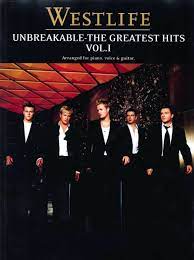 |
 |
| Wet Wet Wet – Love Is All Around | ||
| Wexford Carol (Musescore File).mscz | ||
| Wham , George Michael And Me By Andrew Ridgeley (Book) |
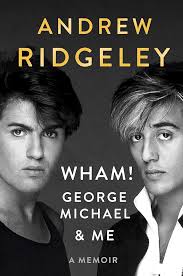 | |
| Wham Make It Big Piano Vocal Guitar Chords |
 | Wham Make It Big Piano Vocal Guitar Chords |
| What a Wonderful World – Thiele & Weiss |
 | |
| What a wonderful world – Louis Armstrong.mscz | ||
| What A Wonderful World (Lead Sheet With Lyrics ) Musescore File.mscz | ||
| What a Wonderful World (lead sheet) – Thiele & Weiss | What a Wonderful World (lead sheet) – Thiele & Weiss | |
| What A Wonderful World (Musescore File).mscz | ||
| What a wonderfull World (Jazz Standard) Guitar Tablature TABs | What a wonderfull World (Jazz Standard) Guitar Tablature TABs | |
| What A Wonderlful World (Lead Sheet) (Musescore File).mscz | ||
| What You’re Made Of – Même Si (Lucie Silvas – Grégory Lemarchal | ||
| What’s That Sound An Introduction To Rock And Its History By John Covach And Andrew Flory (Book) |
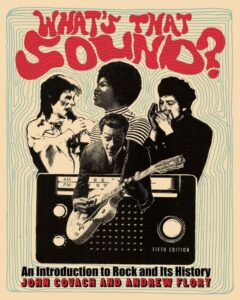 | |
| When A Man Loves A Woman Calvin Lewis & Andrew Wright |
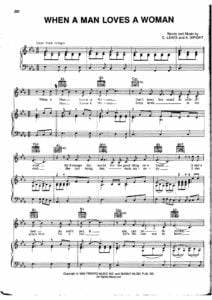 | |
| When Almonds Blossomed – Giya Kancheli | When Almonds Blossomed – Giya Kancheli-1 | |
| When Almonds Blossomed (Musescore File).mscz | ||
| When I Fall In Love – Victor Young (Bill Evans Ver.) (Musescore File).mscz | ||
| When I fall in love Bill Evans version | When I fall in love Bill Evans version | |
| When I’m Sixty-Four (Beatles) | ||
| When Lights Are Low (Benny Carter) As Played By Miles Davis (Musescore File).mscz | ||
| When The Saints Go Marchin In – Gospel Traditional Folk song (Piano solo with Lyrics) | When The Saints Go Marchin In – Gospel Traditional Folk song (Piano solo with Lyrics) SAMPLE | |
| When The Saints Go Marching In – Fun piano arrangement | When The Saints Go Marching In – Fun piano arrangement | |
| When you told me you loved me (Jessica Simpson) | ||
| When You Wish Upon A Star (Musescore File).mscz | ||
| When You Wish Upon A Star (From The Film Pinocchio) Easy Piano Solo Arr. Sheet Music (Musescore File).mscz | ||
| When You Wish Upon A Star (Leigh Harline and Ned Washington) from Pinocchio Jazz Piano Solo arr. sheet music | When You Wish Upon A Star (Leigh Harline and Ned Washington) from Pinocchio Jazz Piano Solo arr. sheet music | |
| When You Wish Upon A Star (Solo Piano Arr ) David Dinh |
 | |
| When You’re Gone (Avril Lavigne) | ||
| When You’re Smiling Louis Armstrong Larry Shay Mark Fisher Joe Goodwin Piano Vocal Chords | When You’re Smiling Louis Armstrong Larry Shay Mark Fisher Joe Goodwin Piano Vocal Chords | |
| When You’re Smiling Louis Armstrong Larry Shay Mark Fisher Joe Goodwin Piano Vocal Chords (Musescore file).mscz | Musescore File | |
| When you’re Smiling Full Score arr. by Tom Kubis | When you’re Smiling Full Score arr. by Tom Kubis | |
| When You’re Smilling (Musescore File).mscz | ||
| Where Are You Christmas From Dr Seuss How The Grinch Stole Christmas Piano Vocal Guitar |
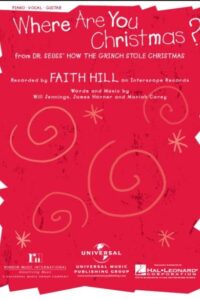 | |
| Where have all the-flowers gone (guitar & voice) | Where-have-all-the-flowers-gone (guitar & voice) | |
| While your lips are still red (Nightwish) | ||
| Whistling away the dark (Darling Lili OST) Henry Mancini | ||
| White Album 2 Ending 3 Sayonara No Koto |
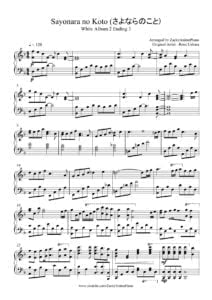 | |
| White Christmas -Irving Berlin – Piano sheet music |
 | |
| White Christmas Irving Berlin (Musescore File).mscz | ||
| White Christmas Medley (Liberace) | ||
| White skin like the moon (Jane Eyre 2011 OST) Dario Marianelli | ||
| Whitesnake – Here I Go Again |
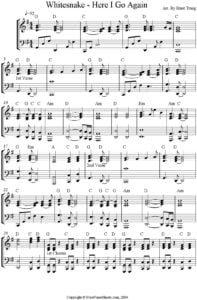 | |
| Whitesnake Guitar Collection with TABs |
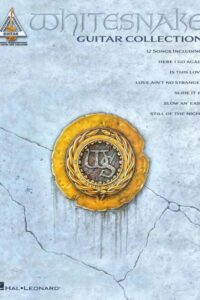 | Whitesnake Guitar Collection with TABs |
| Whitesnake Is This Love Piano Vocal Guitar Chords | Whitesnake Is This Love Piano Vocal Guitar Chords | |
| Whitney Houston – Jesus Loves Me Sheet Music |
 | |
| Whitney Houston The Best Of |
 | Whitney Houston, The Best Of |
| Whitney Houston – It’s Easy To Play Whitney Houston |
 | Whitney Houston – It’s Easy To Play Whitney Houston |
| Whitney Houston – Saving All My Love For You | ||
| Whitney Houston – The Greatest Hits |
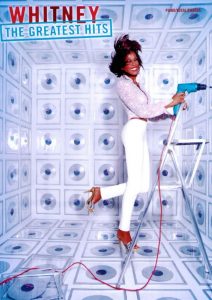 | Whitney – The Greatest Hits |
| Whitney Houston – The Greatest Love Of All | ||
| Whitney Houston I will always love you | Whitney Houston-I-Will-Always-Love-You page 1 | |
| Whitney Houston My Love Is Your Love |
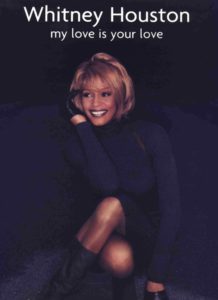 | Whitney Houston My Love Is Your Love |
| Whitney Houston Saving All My Love For You Piano Vocal Guitar | Whitney Houston Saving All My Love For You Piano Vocal Guitar | |
| Who wants to live forever (Queen) | ||
| Why Jazz? A Concise Guide – Kevin Whitehead (book) |
 | |
| Wicked The Musical Sheet Music Full song Book Music and lyrics by Stephen Schwartz |
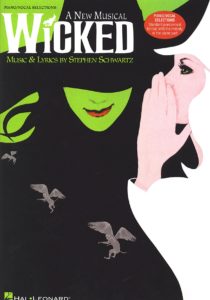 | Wicked the musical contents — Wicked The Musical Sheet Music Full Book |
| Wieck – Piano Studies | ||
| Wiklund Adolf Fran Mitt Fonster (From my Window) Piano Solo |
 | |
| Wild – Fantasy On Gershwin’s Porgy And Bess | Wild Fantasy On Gershwin’s Porgy And Bess | |
| Wild Gershwin Seven Virtuoso Etudes | Wild Gershwin Seven Virtuoso Etudes | |
| Wild, Earl – Gershwin Étude No. 4 based on Embraceable You Piano | Wild, Earl – Gershwin Etude No. 4 based on Embraceable You Piano | |
| Wilde Theme (Debbie Wiseman) | ||
| Wilhelm Kempff Musik Des Barock Und Rokoko – Nr. 13 Menuett G-Moll G.F. Händel (Musescore File).mscz | ||
| Will B. Morrison – Melody in F (Syncopated Waltz) sheet music |
 | |
| Will Young – Anything Is Possible | ||
| William Best I Love You For Sentimental Reasons (Jazz Standard) | William Best I Love You For Sentimental Reasons (Jazz Standard) | |
| William Eveleth – Blues Jazz and Rock Riffs For Keyboards |
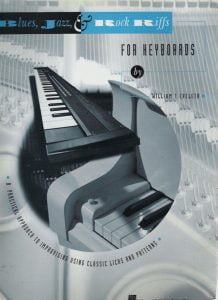 | |
| William Gillock Album for Children for piano |
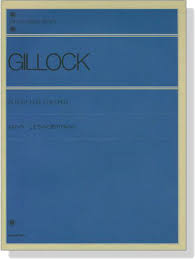 | |
| William Gillock In Old Vienna Musescore File.mscz | ||
| William Gillock Valse Etude In Romantic Style Musescore File.mscz | ||
| William Grant Still – Three Visions (Musescore file).mscz | Musescore File | |
| William Grant Still Summerland fromThree Visions | William Grant Still Summerland fromThree Visions | |
| William Grant Still Three Visions (Suite for solo piano) Dark Horsemen Summerland Radiant Pinnacle |
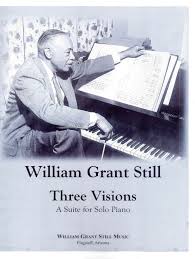 | |
| William Joseph – Within (Songbook) (William Joseph) |
 | William Joseph – Within (Songbook) (William Joseph) |
| William Monk Abide With Me Piano Solo Sheet Music Arr. By Lily Topolski |
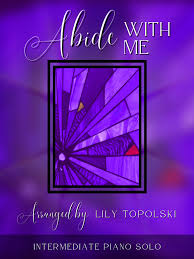 | |
| William Robinson – My Girl | ||
| William Russo Composing Music A New Approach (ebook) |
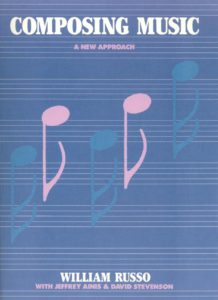 | |
| Willie Dixon Preacher Of The Blues (2011) Mitsutoshi Inaba (Book) Biography |
 | |
| Willie Fugal S Blues Piano transcription |
 | |
| Willie Nelson – Always on My Mind Sheet Music |
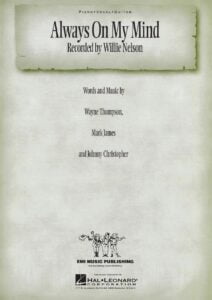 | |
| Willie Nelson – On My Mind | ||
| Willie The Lion Smith – Finger Buster transcription |
 | |
| Willie The Lion Smith Echo of Spring transcription |
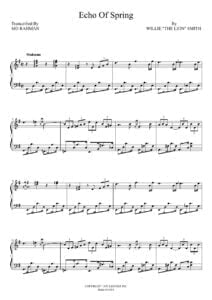 | |
| Willie The Lion Smith Relaxin’ transcription | Willie The Lion Smith Relaxin’ transcription | |
| Willie The Lion Smith Rippling Waters | Willie The Lion Smith Rippling Waters | |
| Willow Weep For Me Words And Music By Ann Ronell 1932 Jazz Standard (Vintage sheet music) |
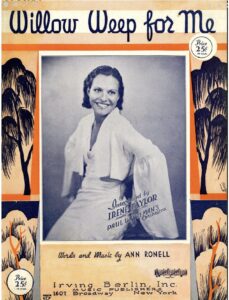 | |
| Willy Wonka And The Chocolate Factory Piano Vocal Guitar Leslie Bricusse Anthony Newley |
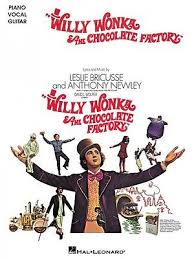 | Willy Wonka And The Chocolate Factory Piano Vocal Guitar Leslie Bricusse Anthony Newley |
| Willy Wonka And The Chocolate Factory Sheet Music Piano Vocal Score | Willy Wonka And The Chocolate Factory Sheet Music Piano Vocal Score | |
| Wim Mertens – American Minimal Music La Monte Young Terry Riley Steve Reich Philip Glass |
 | Wim Mertens – American Minimal Music La Monte Young, Terry Riley, Steve Reich, Philip Glass |
| Wim Mertens – Close Cover | Wim Mertens – Close Cover | |
| Wim Mertens – Struggle For Pleasure | Wim Mertens – Struggle For Pleasure | |
| Wim Mertens – Time Passing |
 | |
| Wim Mertens Humility |
 | |
| Wim Mertens Lir |
 | |
| Windham Hill piano sampler |
 | Windham Hill piano sampler |
| Windy Whistle (Le Renard et l’Enfant OST) Alice Lewis | ||
| Wings (McCartney) – Greatest Hits |
 | Wings sheet music |
| Winifred Atwell Album Of Rags No 1 Original arrangements Vintage songbook |
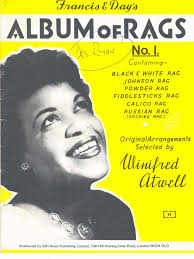 | Winifred Atwell Album Of Rags No 1 Original arrangements Vintage songbook |
| Winifred Atwell Francis & Day’s Album Of Rags No 2 |
 | Winifred Atwell Francis & Day’s Album Of Rags No 2 |
| Winifred Atwell Marguerite Monnot The Poor People Of Paris ( La Goualante Du Pauvre Jean) Piano Solo |
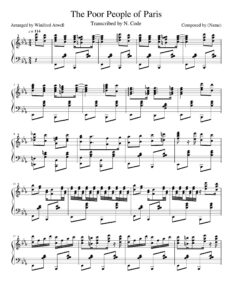 | |
| Winnie The Pooh by Richard and Robert Sherman Piano Arrangement | Winnie The Pooh by Richard and Robert Sherman Piano Arrangement | |
| Winnie The Pooh The Honey Tree Sheet Music (Disney) |
 | Winnie The Pooh The Honey Tree Sheet Music (Disney) |
| Winter Sonata From The Beginning Until Now Ost 겨울 연가 Lyrics In Korean | Winter Sonata From The Beginning Until Now Ost 겨울 연가 Lyrics In Korean | |
| Winter Sonata O.S.T. (Ryu) | ||
| Winter Wonderland Other Christmas Favorites Songbook Piano Vocal guitar Chords |
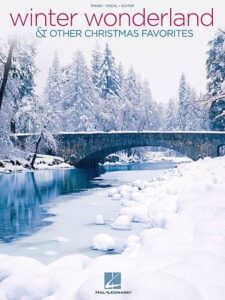 | Winter Wonderland and Other Christmas Favorites Songbook Piano Vocal guitar Chords |
| Wish You Were Here – Pink Floyd (Musescore File).mscz | ||
| Within Temptation – Our Solemn Hour | ||
| Without Frontiers The Life Music Of Peter Gabriel (Book biography) |
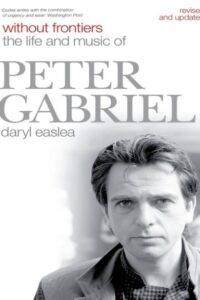 | |
| Without you (Maria Carey) | ||
| Without You (Mariah Carey Piano Arr ) (Musescore File).mscz | ||
| Wiz Khalifa & Charlie Puth See You Again (Solo Piano) |
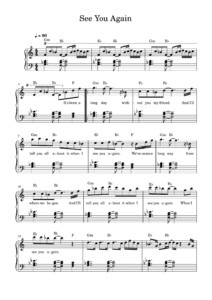 | |
| Wolf Marshall Guitar Method – Advanced Concepts & Techniques with MP3 audio tracks (embedded) |
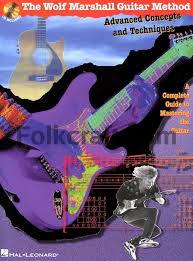 | |
| Wolf Marshall Guitar Method – Basics 1 with MP3 audio tracks (embedded) |
 | Guitar Method – The Wolf Marshall Method – Basics 1 with MP3 audio tracks sheet music pdf |
| Wolf Marshall Guitar Method – Basics 2 with MP3 audio tracks (embedded) |
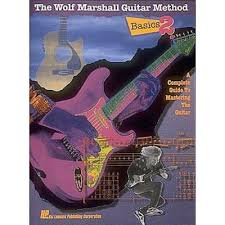 | |
| Wolf Marshall Guitar Method – Basics 3 with MP3 audio tracks (embedded) |
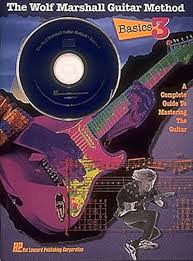 | |
| Wolf Marshall Guitar Method – Power Studies 1 to 3 (Complete) with MP3 audio tracks (embedded) |
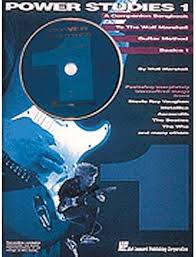 |
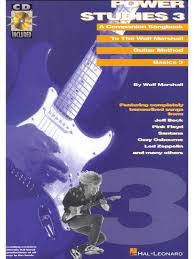 |
| Wolf Wagner Paraphrase Über Die Walküre |
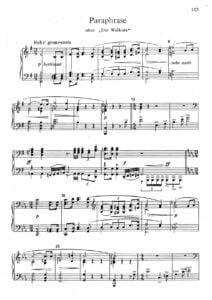 | |
| Wolfe Richard Legit Professional Fake Book More Than 1010 Songs |
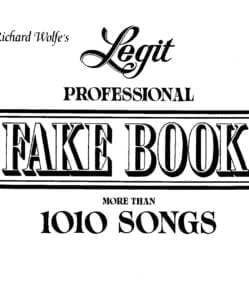 | Wolfe Richard Legit Professional Fake Book More Than 1010 Songs |
| Wolfenzon – Stücke für Klavier | Wolfenzon – Stücke für Klavier | |
| Womack, Bobby – Midnight Mover My Autobiography The True Story of the Greatest Soul Singer in the World (Book) |
 | |
| Woman in love (Barbra Streisand) | ||
| Women Composers A Graded Anthology For Piano Book 1 By Melanie Spanswick Grades 1-4 |
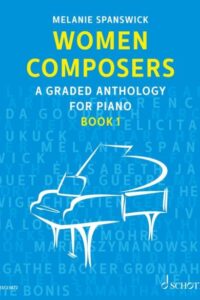 | Women Composers A Graded Anthology For Piano Book 1 By Melanie Spanswick |
| Women Composers A Graded Anthology For Piano Book 2 By Melanie Spanswick Grades 4-7 |
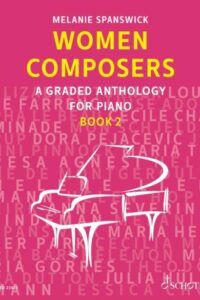 | Women Composers A Graded Anthology For Piano Book 2 By Melanie Spanswick |
| Women Composers A Graded Anthology For Piano Book 3 by Melanie Spanswick Grades 7-8 |
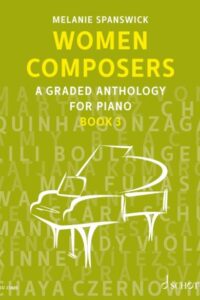 | Women Composers A Graded Anthology For Piano Book 3 |
| Women Of Pop Rock Songbook Twenty-Two Hot Hits for Easy Piano |
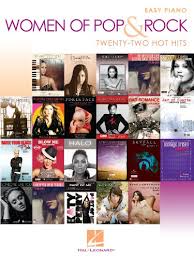 | Women Of Pop Rock Songbook Twenty-Two Hot Hits for Easy Piano |
| Wonderful Christmastime -Paul Mccartney (Wings) (Musescore File).mscz | ||
| Wonderful Life – Black (Easy Piano Solo Sheet Music) (Musescore File).mscz | ||
| Wonderland A New Alice A New Musical. Piano Vocal and Guitar Chords |
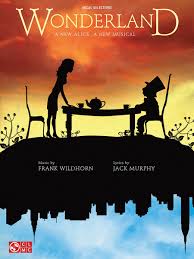 | Wonderland A New Alice. A New Musical. Piano, Vocal and Guitar Chords Frank Wildhorn contents |
| Woody Allen – A propósito de nada (autobiografía)(2020) |
 | |
| Woody Allen – Apropos of Nothing (2020) Autobiography | Woody Allen – Apropos of Nothing-Simon and Schuster (2020) Cover | |
| Woody Guthrie This Land Is Your Land (Easy and Intermediate Piano Solo) |
 | |
| Woody Guthrie Every 100 Years The Woody Guthrie Centennial Songbook 100 Years 100 Songs Guitar Lyrics |
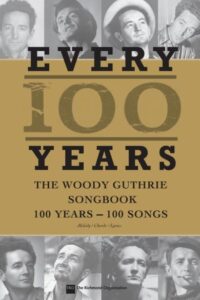 | |
| World Burn From Mean Girls Musical Jeff Richmond and Nell Benjamin | World Burn From Mean Girls Musical Jeff Richmond and Nell Benjamin | |
| World Classic Music For Guitarist No 1 | World Classic Music For Guitarist No 1 | |
| World Classic Music For Guitarist No 2 | World Classic Music For Guitarist No 2 | |
| World Classic Music For Guitarist No 3 | World Classic Music For Guitarist No 3 | |
| World Hits Of Jazz Standard |
 | World Hits Of Jazz Standard |
| World Of Hits Vol. 1 Unforgettable Piano Vocal Chords | World Of Hits Vol. 1 Unforgettable Piano Vocal Chords | |
| World Of Hits Vol. 2 Yesterday And Today Piano Vocal Chords | World Of Hits Vol. 2 Yesterday And Today Piano Vocal Chords | |
| World Of Hits Vol. 3 Night Train Piano Vocal Chords | World Of Hits Vol. 3 Night Train Piano Vocal Chords |
